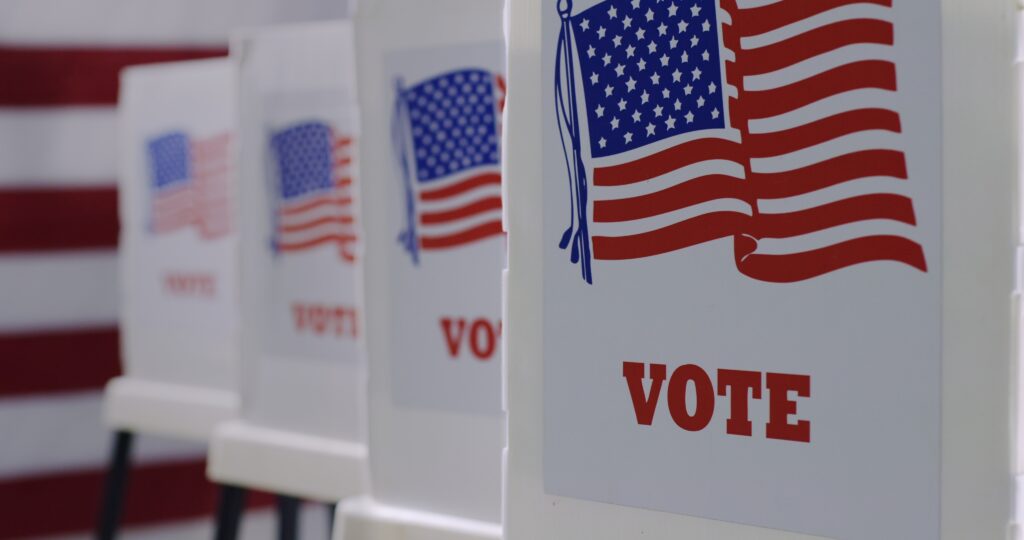As the chief legal officer for West Virginia’s citizens, state office holders, agencies and boards, the attorney general’s (AG) responsibilities cover the legal gamut.
The four candidates in the upcoming primary races for AG have diverse views on how those responsibilities should be handled – and prioritized.
In balancing legal precedents when it comes to fossil fuels and the advancement of renewable energy, Wheeling attorney Teresa Toriseva, a Democratic attorney general candidate, does not take sides. She said following the law is the AG’s job.
“The way you do that is advocacy, following the law and advocating for changes in the law where appropriate,” Toriseva said. “Using the court system where appropriate to make sure that West Virginia’s interests are protected. That, in a transition that’s going to happen naturally or forced by the federal government, whatever the case may be, that West Virginians are heard and protected.”
Republican AG candidate, State Auditor J.B. McCuskey, does take sides in state legal energy precedents. He said natural resource energy development is key to America’s power independent future.
“Renewable energy advancements are part of the private marketplace, and if people want to invest in those kinds of resources, that’s fine,” McCuskey said. “But, at the end of the day, the United States cannot run without coal and natural gas. I believe that the future for this country and specifically in West Virginia, will be way better served if we are making electricity as quickly and as vociferously as possible, with the natural resources that we find under our feet.”
AG candidate Sen. Mike Stuart, R-Kanawha, and former U.S. Attorney for West Virginia’s Southern District, strongly advocates legal support for fossil fuels over a renewable energy grid he said is still young and overly protected by federal overreach.
“I’m not against renewables, but the science doesn’t match up with the expectations of renewable energy,” Stuart said. “We’re hitting natural gas, we’re hitting coal, we’re hitting the power plant industry awfully hard. We’re taking offline traditional energy sources, while preferring green energy sources, and it can’t keep up. If we continue on the current track, the trajectory we’re on, we’re going to have rolling blackouts, even in places like West Virginia, in which the ground beneath our feet is loaded with natural resources. We need to be smart about this. I certainly expect in the future renewables will play a bigger role in the energy production of this country and in places like West Virginia, but we’re not there yet.”
Renewables have become a bigger part of the nation’s energy mix, surpassing coal. They produce no carbon emissions and are the lowest cost form of electricity. Storage batteries, including the ones that will be built by Form Energy in Weirton, help make renewables more reliable by storing the power they generate for when it’s needed. Natural gas, though, remains the dominant fuel for U.S. electricity.
In combating the illegal drug epidemic. Democratic AG candidate Richie Robb, a Vietnam veteran and former eight-term South Charleston mayor, said state attorneys general must partner with the federal Department of Defense to change a war on drugs to a war on drug terrorism.
“The military monitors arms shipments around the world, certainly that expertise can be employed to monitor illegal drug shipments as well,” Robb said. “In cooperating with other countries, instead of waiting to apprehend drugs, after they’re already in the United States, or even trying to apprehend those same drugs on the border, my proposal would be to stop the drugs at the source much the same way we do with terrorism.”
Toriseva puts second amendment rights and reproductive rights together. She said it’s not the job of the AG’s office, or the government, to tell people how to live.
“I have the same position on a woman’s right to choose as I do on the Second Amendment and my right to carry a firearm, and that is I’ll decide,” Toriseva said. “I do not need the government in my doctor’s office, I do not need the government in my gun safe.”
McCuskey said no one has faced more onerous federal regulation than West Virginia farmers. As AG, he vowed to continue fighting for farmers’ rights.
“Agriculture is going to be an enormous driver of West Virginia’s economy going forward,” McCuskey said. “It’s not just from a food production standpoint, but also from a tourism standpoint, allowing our farmers to showcase what they do in a way that drives new visitors to West Virginia, but also ensures that that not just West Virginia, but the entire East Coast has food security, and that the food that we eat is known to be safe and secure.”
Robb said consumer fraud is rampant on many levels, highlighting the rise of artificial intelligence. He wants to create an AG fraud tip-line.
“With the current Consumer Protection Office, the present attorney general, in his publicizing that service, it’s been woefully inadequate,” Robb said. “It needs to be publicized. The reason for a tip line is many people, particularly insiders, are afraid to openly report wrongdoing. An anonymous tip line will enable them to do that.”
Stuart said his AG’s office will be proactive in creating veteran’s courts and expanding veteran’s outreach.
“Many times they don’t even know the resources that are available to them,” Stuart said. “Substance abuse, homelessness, all the problems that plague society, plague our veterans at even a higher clip than the standard demographic breakdown of our communities. They deserve our support. Veterans’ courts are intended to do this. We want them to get the services that they need for mental health, physical health. We need to do all we can to make sure veterans get every break they can to try to re-acclimate into society.”






















